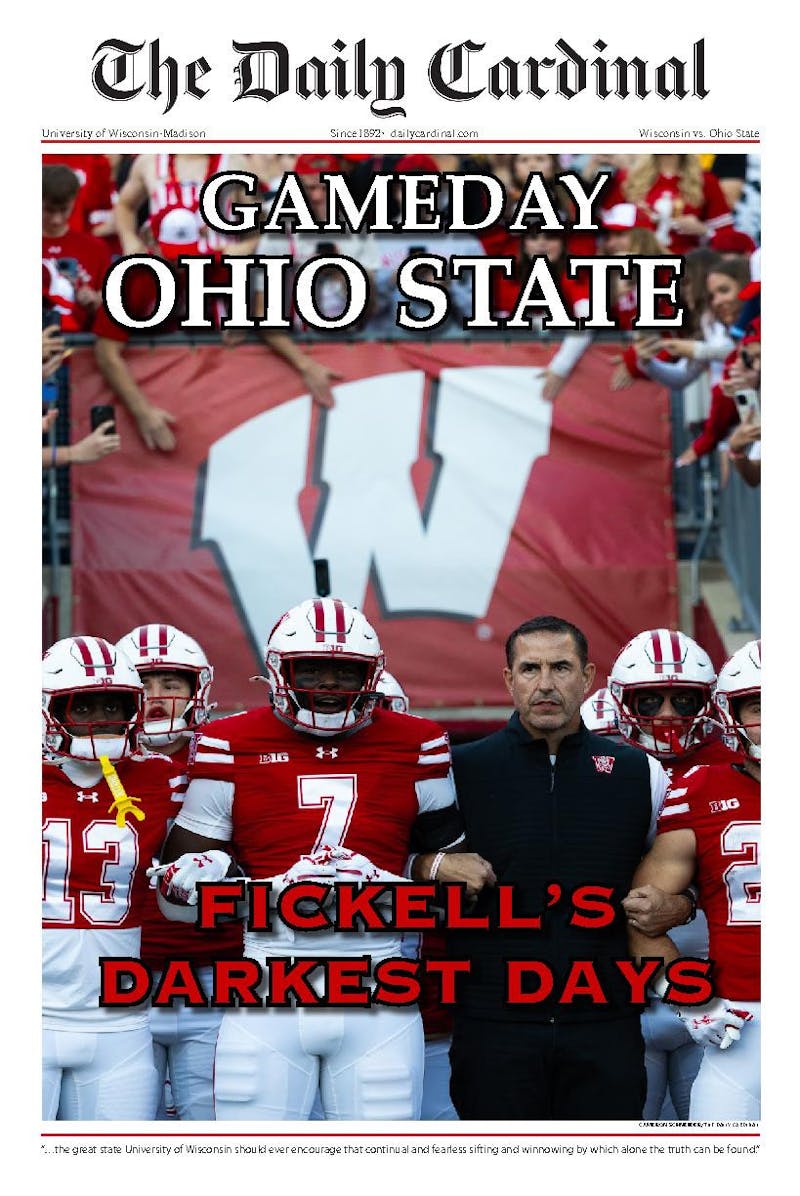Three weeks before she turned 18, former UW-Madison student Logan Johnson moved into Sellery Residence Hall in August 2013 to begin her freshman year of college.
She said within two days she was sexually assaulted by someone she had met at a party. And in the 15 months between that incident and her decision to report it, she said she was assaulted four more times: once again by the first alleged assailant, twice more by his fraternity brother and once by someone she used to call a friend.
Johnson left Madison briefly and returned home to Milwaukee after the last reported assault in October 2014. She returned in January after missing class, and she moved into a dorm in the Lakeshore neighborhood upon arriving back on campus.
“Being back in Madison has been hard for her. She has been fearful of seeing her old roommates and friends,” said Johnson’s mother in an email to Tonya Schmidt, assistant
After filing a report with the Madison Police Department, Johnson met with Schmidt, who also opened a university investigation into the incidents.
While the school’s investigation unfolded, Schmidt issued no contact directives to Johnson and the three assailants she’d named, rendering any further communication between Johnson and the alleged perpetrators off-limits by order of the university.
This type of directive—which could jeopardize a student’s status at the university if violated—prohibits contact between two individuals ranging from intentional face-to-face meetings to liking each other’s Facebook photos.
“You know, you get the notifications and it says ‘so-and-so liked your post,’” Schmidt explained. “Some people use that to control their victim.”
Requests for no contact orders happen fairly often—about once every two weeks, Schmidt said. Reasons can be as simple as a roommate relationship gone sour, but they more commonly deal with dating violence, sexual
If contact is made, Schmidt said her office will review the incident and determine whether or not the incident happened intentionally.
If it did—and each incident is considered separately—the student could receive a formal reprimand, one or two-year probation, suspension or expulsion in more extreme cases.
Both parties receive the same message ordering all communication to stop. In cases like Johnson’s, that means both the reporter and alleged perpetrator are given the same instructions, a component of the directive Schmidt said has received pushback from advocates who claim it is retaliatory against victims. However, she explained it is simply part of a concerted effort to preserve the sanctity of exactly what “no contact” means.
“In actuality, we’re really just trying to make sure that everybody understands that there can no longer be contact between each other,” Schmidt said. “It also helps keep the investigation impartial.”
In August 2015, a few months after both Madison police and the university closed Johnson’s case without enough evidence to yield consequences for the three men involved, one of her alleged assailants moved into her apartment building.
Although the no contact order still functions off-campus, Schmidt admitted it is harder to monitor, especially if both parties live in the same apartment complex.
“There’s not a whole lot we can do,” she said. “We can put some extra restrictions, like don’t go into the gym between four and six and the other person’s going to be told they can’t go between six and eight, things like that to try to alleviate the contact that’s going to happen.”
Johnson felt the contact was so intrusive that she filed for a formal injunction with the city of Madison. She said it was “very scary for me to be alone with him in the building.”
“He constantly is looking at me and has stopped trying to avoid me when he see’s (sic) me,” Johnson wrote when she filed for the injunction, a document obtained by The Daily Cardinal.
She received the injunction from the
In other cases, Schmidt explained that the no contact order functions as a way to prevent the need for such a formal action, especially given the fact that a restraining order or injunction hearing requires both parties to be in attendance—and those reporting assault often do not want to see their assailants.
Schmidt said the no contact directive would not be a perfect fit in every scenario, but also stressed that with the university directive, there’s no need for students to rehash every detail of their experience and it likely won’t trigger any sort of investigation.
She said the only exception is if one of the student’s names had come up in a previous misconduct case, usually dealing with sexual assault reports. Then, because she and her staff are mandatory reporters, the university would be required to open an investigation. It’s a rare case, she added, that has only happened two or three times in the last few years.
The entire process is usually settled with only a brief description and a request.
“We need to know the gist of it, not, ‘Take me through this horrible experience that you’ve had.’ If you tell me, ‘I’ve been sexually assaulted by this person and would like a no contact directive,’ boom,” Schmidt said. “We will do it.”
Nina Bertelsen and Peter Coutu contributed to this report.






